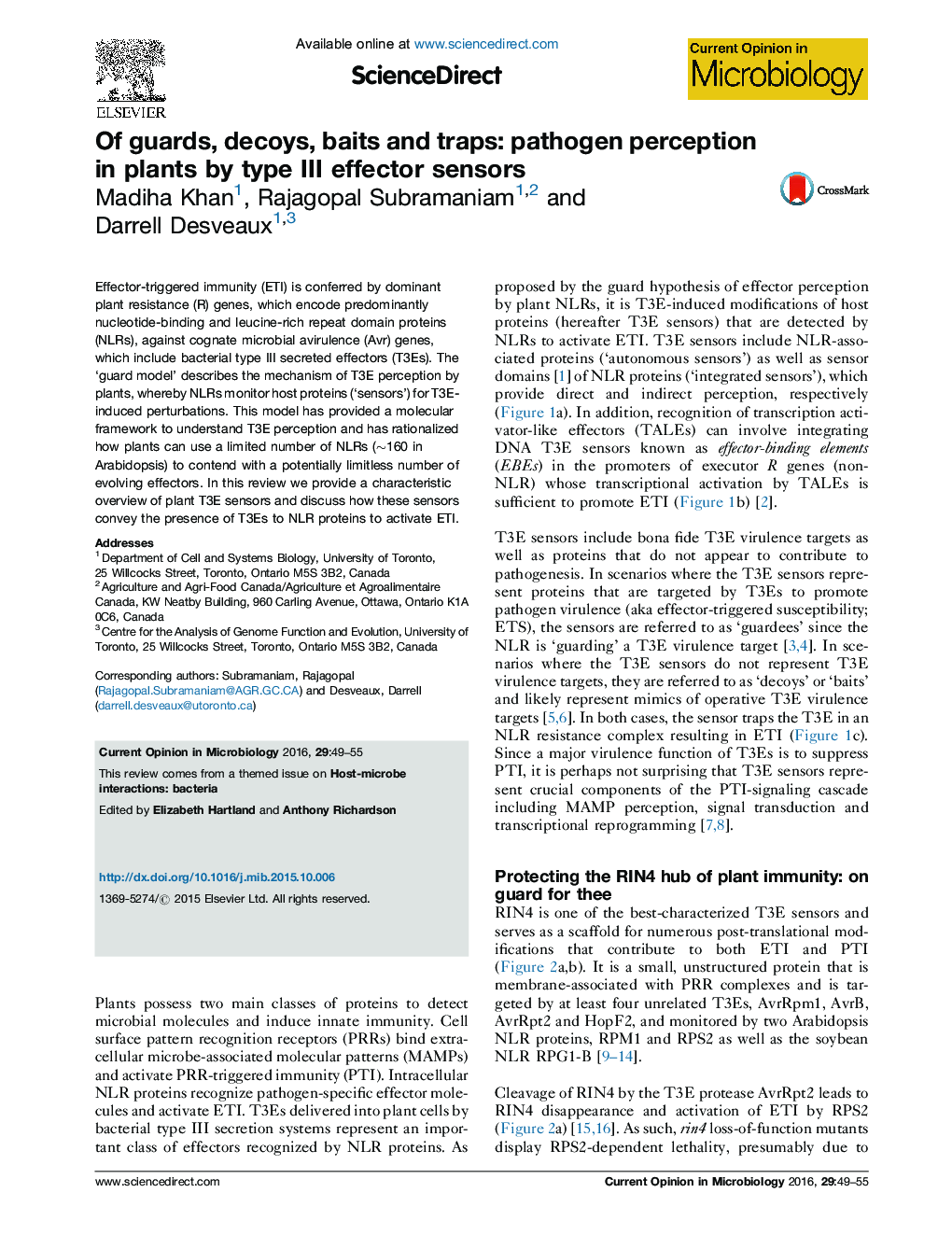| کد مقاله | کد نشریه | سال انتشار | مقاله انگلیسی | نسخه تمام متن |
|---|---|---|---|---|
| 6131702 | 1593040 | 2016 | 7 صفحه PDF | دانلود رایگان |
عنوان انگلیسی مقاله ISI
Of guards, decoys, baits and traps: pathogen perception in plants by type III effector sensors
دانلود مقاله + سفارش ترجمه
دانلود مقاله ISI انگلیسی
رایگان برای ایرانیان
موضوعات مرتبط
علوم زیستی و بیوفناوری
ایمنی شناسی و میکروب شناسی
میکروب شناسی
پیش نمایش صفحه اول مقاله

چکیده انگلیسی
Effector-triggered immunity (ETI) is conferred by dominant plant resistance (R) genes, which encode predominantly nucleotide-binding and leucine-rich repeat domain proteins (NLRs), against cognate microbial avirulence (Avr) genes, which include bacterial type III secreted effectors (T3Es). The 'guard model' describes the mechanism of T3E perception by plants, whereby NLRs monitor host proteins ('sensors') for T3E-induced perturbations. This model has provided a molecular framework to understand T3E perception and has rationalized how plants can use a limited number of NLRs (â¼160 in Arabidopsis) to contend with a potentially limitless number of evolving effectors. In this review we provide a characteristic overview of plant T3E sensors and discuss how these sensors convey the presence of T3Es to NLR proteins to activate ETI.
ناشر
Database: Elsevier - ScienceDirect (ساینس دایرکت)
Journal: Current Opinion in Microbiology - Volume 29, February 2016, Pages 49-55
Journal: Current Opinion in Microbiology - Volume 29, February 2016, Pages 49-55
نویسندگان
Madiha Khan, Rajagopal Subramaniam, Darrell Desveaux,